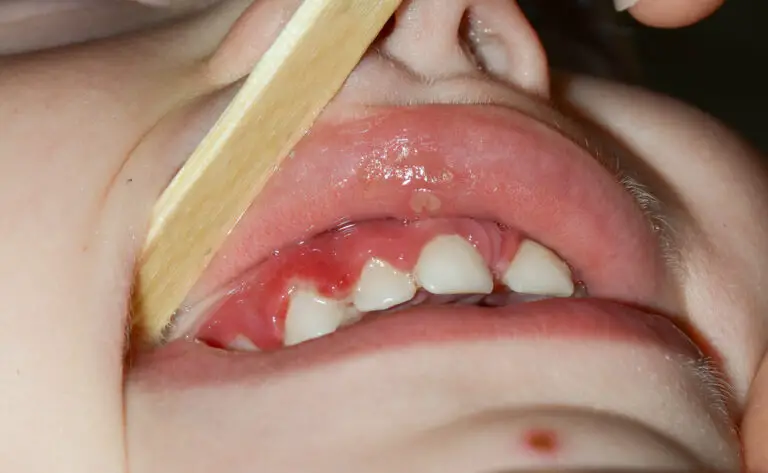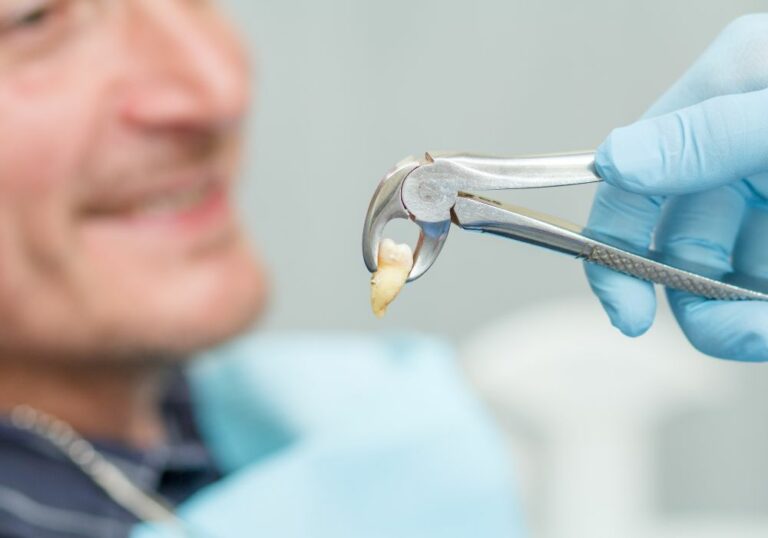Dentists are often accused of being too quick to suggest removing teeth rather than trying to save them. Patients frequently complain that dentists seem eager to pull teeth out instead of exploring other options first. But is this perception accurate? There are several valid reasons dentists may recommend tooth extraction more readily than other treatments in certain situations. However, ethical dentists also aim to preserve and restore natural teeth whenever realistically possible.
Key Reasons Dentists May Need to Extract Teeth
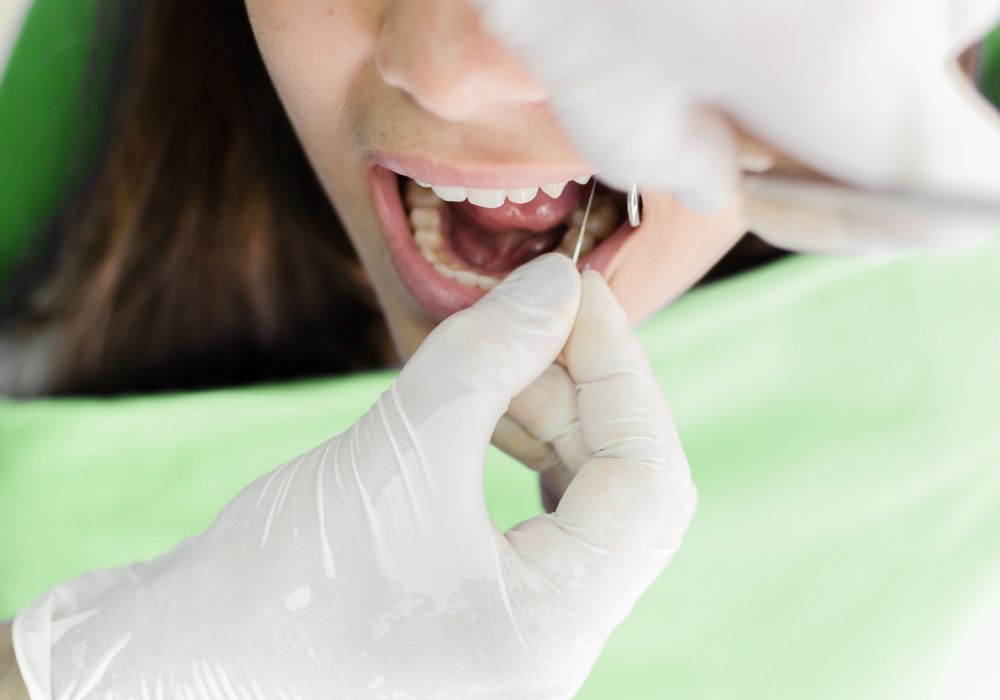
Severe Tooth Decay and Damage
When cavities extensively destroy tooth structure and surrounding bone, extraction is often necessary to prevent the spread of bacteria and decay. Removing severely compromised teeth is sometimes the only way to eliminate sources of infection, swelling and pain. Crowns, fillings and other restorations cannot adequately repair teeth with such severe decay or breakage. Extracting these non-viable teeth and replacing them with implants or dentures can restore function and prevent decay from migrating to healthy areas.
Advanced Periodontal (Gum) Disease
Moderate to advanced gum disease damages the tissues and bone supporting teeth. As periodontal disease worsens, teeth loosen and bone loss accelerates. At this progressive stage, options are very limited for saving severely loosened teeth. Extracting teeth weakened by advanced periodontal disease can prevent further irreversible bone loss and worsening infection in the mouth. The extraction sites will fill in with some bone over time. Dentists may recommend extraction in advanced cases to halt this destructive periodontal disease process.
Other Dental and Medical Complications
Various other tooth and mouth issues can also necessitate extractions when teeth cannot be salvaged or may cause harm:
- Cracked teeth – Cracks extending below the gumline often cannot be restored, as they typically involve damage to the pulp. Root canals may temporarily help pain, but cracks usually worsen over time, requiring extraction.
- Impacted teeth – Teeth partially or fully impacted against other teeth or bone can eventually damage adjacent teeth and bone. Extracting the impacted teeth prevents further complications.
- Dental injuries – Severe trauma to teeth from sports injuries, accidents or falls may preclude repair due to extensive root, nerve or pulp damage.
- Certain oral cancers – Tooth removal may be needed to aid biopsy or treatment of some mouth cancers involving the gums, tongue or cheeks.
- Jaw orthognathic surgeries – Tooth extraction can aid certain jaw realignment or cleft procedures by allowing proper jaw positioning.
- Systemic infections – Removing source teeth may help resolve some refractory infections affecting the heart, joints or other areas.
Patient Finances and Dental Insurance
Extracting and replacing a tooth is often significantly less costly than other treatments like root canals, crowns, implants and bridges. Limited dental insurance plans may fully cover basic tooth extractions, but provide little or no benefit for root canals or restorations. With the rise in insurance deductibles and co-payments, many patients’ out-of-pocket costs can be considerably lower for tooth removal compared to other options. Financial constraints may play a role in some patients choosing extraction over other treatments.
Why Dentists Seek to Preserve Natural Teeth Whenever Realistically Possible
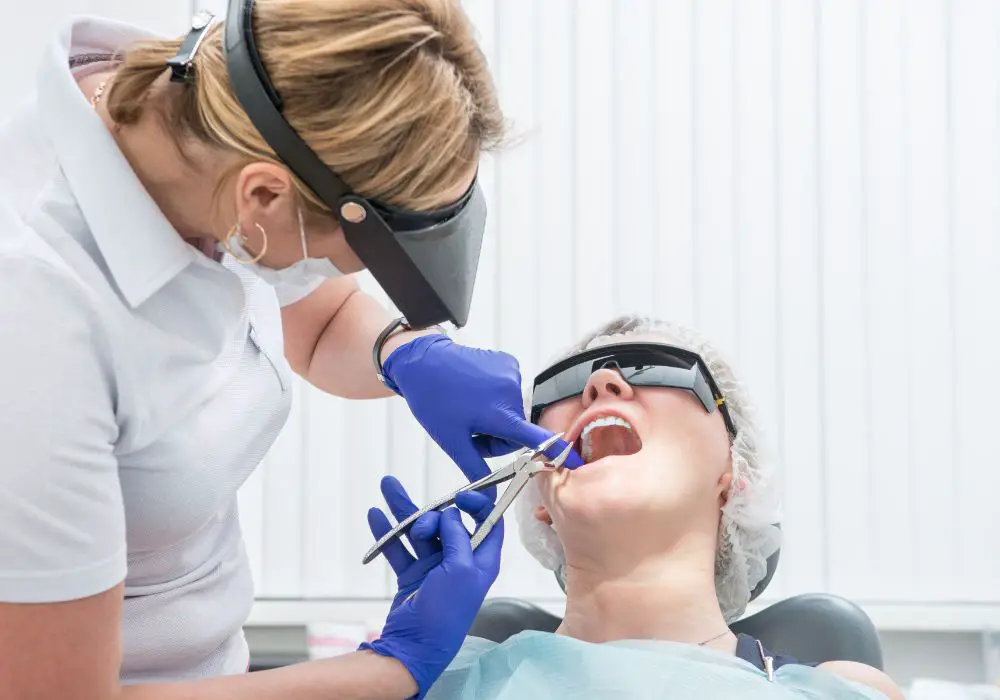
Despite valid reasons for some tooth extractions, most dentists do not take removing teeth lightly. They understand the importance of natural teeth for dental health and aim to preserve them rather than pull them whenever realistically possible.
Significant Benefits of Keeping Natural Teeth
Preserving natural teeth offers many physical and psychological benefits:
- Helps preserve jaw bone – Tooth roots embed in the jaw bone to support and anchor teeth. Loss of tooth roots after extractions can cause accelerated bone loss. During the first year, patients can lose up to 25% of their alveolar jaw bone height following extractions. This progressively worsens with more missing teeth.
- Retains facial structure – Missing teeth remove support needed for cheekbones and facial muscle attachments. This can make facial skin sag, prematurely aging patients’ appearance.
- Prevents other teeth from shifting – When a tooth is extracted, the adjacent and opposing teeth can shift toward the new space or super erupt since their opposing surface is gone. This can change occlusion and cause bite issues.
- Aids chewing capacity – Natural teeth distribute chewing forces far better for grinding food properly. Replacing missing teeth with even well-made dentures still reduces chewing capacity by up to 50%.
- Limits infection – Extracting disease-free teeth can expose more tooth surfaces to decay-causing bacteria. It’s better to keep healthy natural teeth if possible.
- Enhances speech – Missing back teeth usually don’t affect speech much, but missing front teeth can make it harder to pronounce certain words clearly.
- Improves self-esteem – Many patients feel better about their smile and confidence when they can keep their natural teeth.
Advances in Restorative Treatments
New materials and techniques are also enhancing dentists’ ability to save severely damaged or decayed teeth:
- Durable bonded composites can now rebuild and restore badly worn, broken or decayed teeth when carefully applied.
- Dental implants can replace tooth roots, preventing bone loss after extractions if placed promptly.
- Root canal advances using microscopes, 3D imaging and lasers can better treat infections deep inside teeth.
- New periodontal procedures remove infection and place bone grafts or growth factors to regenerate lost bone and gum tissue.
- Cosmetic treatments like professional whitening, tooth reshaping and resin bonding can revive and enhance damaged or discolored teeth.
Guidelines Dentists Follow for Recommending Tooth Removal
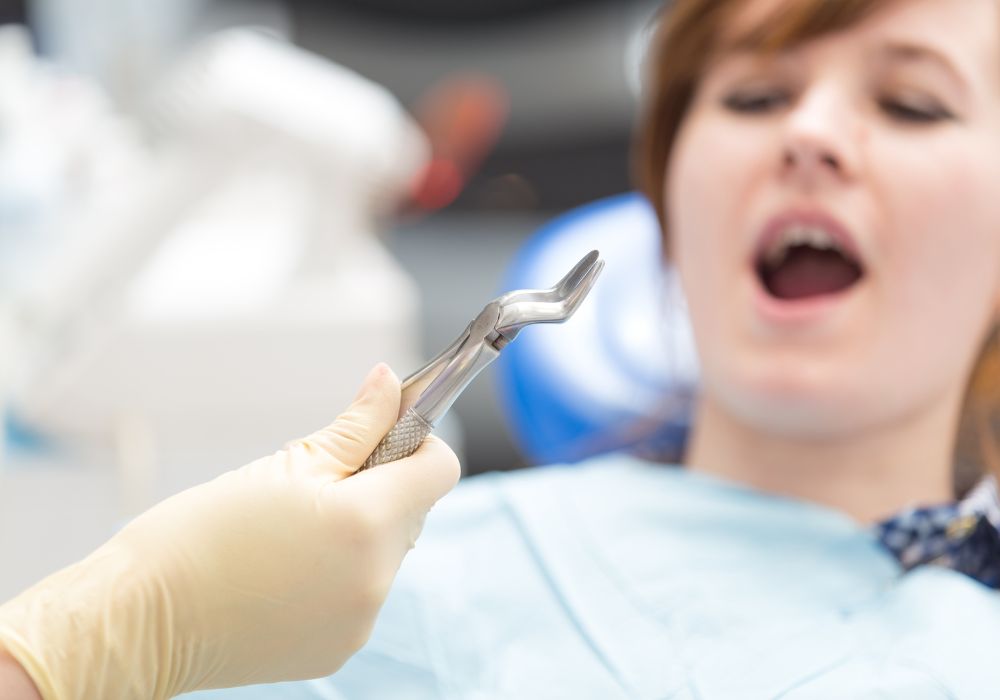
To ensure tooth extractions are truly needed, ethical dentists adhere to certain professional standards and protocols.
Thorough Examination and Assessment
Dentists conduct a complete visual examination of all teeth surfaces, with probing and manual testing of tooth looseness. X-rays diagnose hidden decay and damage to tooth roots, surrounding bone and other structures. Medical history helps identify any health conditions possibly complicating extraction procedures or healing.
Careful Consideration of Extraction Necessity
The dentist assesses x-rays and examination findings to determine the extent of damage to each tooth. They carefully weigh the risks and benefits of extraction compared to other treatment options for each tooth. This helps determine whether extraction is essential or merely elective for each case.
Explaining All Options to the Patient
The dentist thoroughly explains all options to address the dental problems identified, such as root canals, crowns, implants, dentures and periodontal treatments. They clearly outline the pros and cons of each approach, including approximate costs and insurance coverage where applicable.
Obtaining the Patient’s Informed Consent
Before extraction, the dentist reviews possible procedure risks like nerve disturbances, sinus involvement and dry socket. Patients must fully understand the procedure, potential complications, recovery time and alternatives. They provide written consent, confirming the extraction decision was fully informed.
Appropriate Follow-Up After Extractions
After extractions, dentists have patients return for monitoring and to provide post-extraction instructions about medication, ice packs and avoiding certain foods during initial healing. They also discuss longer-term tooth replacement options with the patient, including dentures, bridges or implants.
Frequently Asked Questions
Q: Are dentists paid more money to remove rather than save teeth?
A: Most dentists actually earn higher fees for procedures like root canals and crowns compared to basic tooth extractions. Their treatment recommendations are based on what is truly best for the patient’s specific dental health needs and preferences, not financial incentives.
Q: Do some dentists remove healthy teeth just to sell more implants and dentures?
A: Ethical, patient-focused dentists will not extract healthy teeth only to generate more revenue from implants and prosthetics. They only recommend extraction when teeth are deemed non-restorable or present clear risks like untreated infection or cysts.
Q: Can I get a second opinion before agreeing to recommended extractions?
A: Yes, it is always a good idea to seek a second opinion if you are unsure or uncomfortable with proposed extractions, especially for teeth that do not appear severely damaged. This allows you to get added perspective on options before proceeding.
Q: What should I do if my dentist seems set on pulling one or more teeth unnecessarily?
A: Voice your concerns clearly and explain your reluctance to extract teeth without first exploring other possible treatment options to save them. Get their perspective, but stand firm if you remain uncomfortable with extracting teeth that may still be salvageable.
Q: What if I simply cannot afford the high cost of dental implants after extractions?
A: Discuss costs and payment options fully upfront. If finances are an issue, consider more affordable tooth replacement options like partial dentures or bridges instead of implants. Many dentists also offer in-house payment plans that allow you to pay over time.
In Conclusion
While patients often feel dentists are too quick to pull teeth, extractions are sometimes necessary when extensive decay or disease cannot be resolved. However, skilled and ethical dentists always try to preserve and restore natural teeth rather than extract them whenever realistically possible. Clear communication between dentist and patient can help ensure the best individual treatment plan is selected, whether that involves extractions, root canals or other options. With compassionate care and continuing advances in dental treatments, natural teeth can often be saved rather than pulled.


